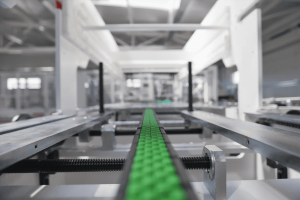The side effects of the COVID-19 pandemic have been felt across almost every sector worldwide. And for the electronics industry, this period has been rife with change and uncertainty.
From fluctuating demand and labour shortages to global supply chain issues, original equipment manufacturers (OEMs) and electronics manufacturing services (EMS) providers have adapted to numerous challenges since the first shockwaves of coronavirus emanated from China at the start of 2020.
Now that most restrictions have lifted and businesses seek to accommodate new ways of living and working in a post-pandemic world, it is time for the electronics industry to take stock of what has changed and how it can become more resilient to future obstacles.
Electronics throughout the pandemic
The pandemic has brought about significant changes to the way we live and work, necessitating widespread digitisation as more people rely on technology for day-to-day tasks, entertainment and communication.
COVID-19 has put medical electronics manufacturing and technology at the forefront of innovation, as more medical professionals and patients have been forced to rely on devices to carry out virtual or remote monitoring, treatment and diagnosis. Plus, with the growing adoption of remote or hybrid working models, consumer demand for other smart electronics has grown as businesses and individuals invest in technology to improve comfort and security.
The internet of things (IoT) has also been vital for keeping the world connected. Using sensors and IoT-enabled devices allows access to real-time data and remote monitoring for anything from building controls to patient care, alongside connectivity via the Cloud for smartphones, laptops and wearable devices.
However, COVID-related delays, digitisation, geopolitical tensions and Brexit have led to significant ongoing international supply chain issues. As a result, many industries have struggled to keep up with the increasing demand for electrical components and equipment.
For example, a shortage of semiconductors has dramatically impacted almost every sector of electronics — from automotive electronic manufacturing services to entertainment console production — since COVID-19 swept through the Asian countries where the majority of semiconductor manufacturing is based. Although supply has begun to recover, the shortage is unlikely to be resolved in the near future.
The future of electronics manufacturing
The pandemic has exposed weaknesses in the electronic industry’s reliance on supply from China and the Far East and the fragility of the ‘just-in-time’ supply model. But electronics manufacturers may still stand to gain from the events of the past year and a half if they are willing to adapt their approach.
As digitisation ramps up and the world continues to recover from the fallout of the pandemic, the electronics industry will be busier than ever. Therefore, the electronics industry must invest in training for new engineers to build a skilled workforce that can keep up with the industry’s ever-changing demands.
But according to industry leaders, young engineers know very little about printed circuit boards (PCBs) and printed circuit board assembly (PCBA) before entering the field. That is why initiatives such as IPC’s Electronics Assembly for Engineers (AEA) course are crucial for educating and inspiring the next generation of engineering professionals.
Supply shocks have also revealed the need for national electronics manufacturing to avoid dependency on a singular country or provider, increase the resilience of supply chains and reduce downtime in the event of disruption. Plus, EMS providers and OEMs must consider if the materials they use will continue to be sustainable for the future; copper (essential for cabling and PCBs) is in short supply, and many materials used within electronics are contributing to the growing issue of e-waste.
We have been working to establish secure, sustainable international supply chains to minimise the impact of disruption and delays on our customers. To speak to a member of the team about your next project, get in touch today.












